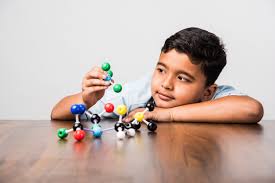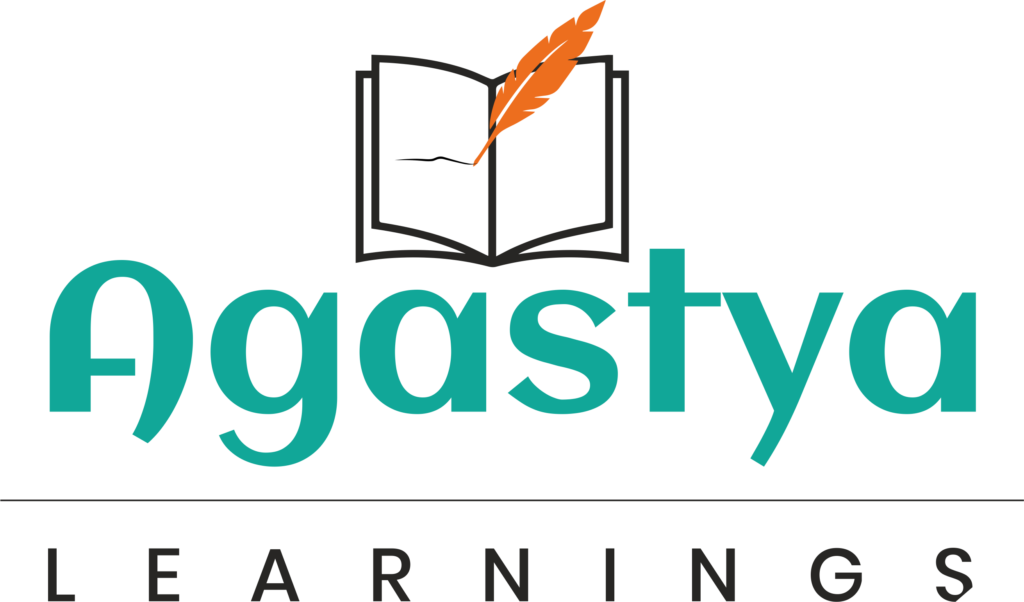
Developing Critical Thinking Through Science: Preparing for Olympiads
Developing Critical Thinking Through Science: Preparing for Olympiads
In today’s rapidly changing world, success is no longer just about memorizing facts and formulas. To excel academically and in future careers, students need to develop the ability to think critically, analyze information, and solve complex problems. Science Olympiads are the perfect platform to nurture these skills, as they challenge students to apply their knowledge in innovative ways and solve real-world problems.
Preparing for Science Olympiads not only helps students excel in competitive exams but also fosters critical thinking, a skill that is valuable in all aspects of life. In this blog, we’ll explore how Olympiad preparation helps develop critical thinking, how scholarship exams reinforce these skills, and how hybrid learning enhances the entire learning experience.
What is Critical Thinking, and Why is it Important?
Critical thinking is the ability to analyze information, evaluate evidence, and form reasoned conclusions. It goes beyond simply recalling facts; it involves questioning assumptions, recognizing patterns, and solving problems through logic and reasoning.
Why Critical Thinking Matters:
- Problem-Solving: Critical thinking equips students with the tools to approach problems methodically, which is crucial for success in Science Olympiads and other competitive exams.
- Innovation: By encouraging students to think outside the box, critical thinking fosters creativity and innovation, skills that are increasingly important in the science and technology sectors.
- Decision-Making: Critical thinkers can make informed decisions based on evidence and logical reasoning, skills that are essential not only in academics but also in everyday life.
How Science Olympiads Foster Critical Thinking
Science Olympiads are designed to challenge students in ways that go beyond the standard curriculum. These exams require students to think critically, analyze data, and apply scientific concepts to solve complex problems. Preparing for Science Olympiads nurtures these critical thinking skills through practice and exposure to advanced scientific concepts.
Ways Olympiads Develop Critical Thinking:
- Problem-Based Learning: Science Olympiad questions often involve real-world scenarios, requiring students to apply their theoretical knowledge to solve practical problems. This type of learning encourages students to think critically and creatively.
- Data Analysis: Olympiad exams frequently include questions that require data interpretation, graph reading, and scientific reasoning. These exercises help students develop the ability to analyze and draw conclusions from complex information.
- Experimentation and Hypothesis Testing: Science Olympiads sometimes involve experimental design or analyzing the outcomes of experiments, reinforcing the scientific method and critical thinking in the process.
Through consistent Olympiad preparation, students learn to approach problems from different angles, develop strategies for analyzing complex data, and think critically about the outcomes.
Preparing for Olympiad and Scholarship Exams: The Role of Critical Thinking
Olympiad and scholarship exams require more than just rote memorization. Success in these competitive exams is built on a foundation of critical thinking, analytical skills, and deep understanding of scientific concepts. Starting early and integrating critical thinking exercises into study plans can give students a distinct advantage.
Key Preparation Strategies:
- Active Learning: Encourage students to engage in active learning by asking questions, participating in discussions, and challenging themselves with practice problems that require critical thinking.
- Mock Tests and Analysis: Taking mock tests and reviewing the answers critically helps students understand where they went wrong, analyze their thought processes, and learn how to avoid similar mistakes in the future.
- Real-World Applications: Help students relate what they learn to real-world scenarios. When students understand how scientific principles apply in everyday life, they are more likely to retain information and think critically about it.
Critical thinking is not just about solving problems correctly—it’s about understanding why a solution works and being able to apply that solution to new challenges. This skill is invaluable in both Olympiad and scholarship exams.
Leveraging Hybrid Learning to Enhance Critical Thinking
The hybrid learning model, which combines traditional classroom instruction with online resources, has proven to be particularly effective in developing critical thinking skills. This approach provides students with access to interactive tools, real-time feedback, and personalized learning paths, all of which encourage deeper engagement with the material.
How Hybrid Learning Promotes Critical Thinking:
- Interactive Learning Tools: Online platforms offer a range of interactive resources such as simulations, virtual labs, and quizzes that challenge students to think critically while reinforcing scientific concepts.
- Self-Paced Learning: Hybrid learning allows students to explore topics in-depth at their own pace. They can revisit complex concepts, explore additional resources, and test their understanding through quizzes and exercises.
- Immediate Feedback: In hybrid learning platforms like Agastya Learnings, students receive immediate feedback on their performance, helping them reflect on their thought process and correct misconceptions right away.
By integrating hybrid learning into Olympiad preparation, students are able to practice critical thinking through a variety of engaging, interactive tools, ensuring that they fully understand the concepts before applying them in exams.
Building Critical Thinking for Future Success
The critical thinking skills that students develop through Science Olympiads and other competitive exams will serve them well beyond the academic world. Whether they pursue careers in science, engineering, technology, or any other field, the ability to think critically, analyze data, and solve problems is invaluable.
Long-Term Benefits of Critical Thinking:
- Academic Success: Critical thinking helps students excel not only in Olympiad and scholarship exams but also in their regular school curriculum, leading to higher grades and a deeper understanding of subjects.
- Career Opportunities: In the modern workforce, employers highly value individuals who can think critically, adapt to new challenges, and offer innovative solutions.
- Lifelong Learning: Critical thinkers are better equipped to continue learning throughout their lives, as they are naturally curious and motivated to explore new ideas and concepts.
By fostering critical thinking from an early age, students develop a lifelong skill set that will help them navigate the complexities of both their academic and professional journeys.
How Parents and Educators Can Support Critical Thinking Development
Parents and educators play a crucial role in encouraging the development of critical thinking in students. Whether preparing for Science Olympiads, scholarship exams, or other academic challenges, support and guidance are essential to nurturing this vital skill.
Tips for Supporting Critical Thinking:
- Encourage Curiosity: Foster a culture of curiosity by encouraging students to ask questions, explore new ideas, and challenge existing assumptions. Help them seek answers through experimentation and inquiry.
- Promote Discussion: Engage in discussions with students about scientific concepts and problems. Encourage them to explain their reasoning and consider alternative solutions to challenges.
- Provide Resources: Leverage hybrid learning tools and online platforms to provide students with access to interactive quizzes, virtual labs, and other resources that promote critical thinking.
- Model Critical Thinking: As a parent or educator, model critical thinking in everyday life. Discuss how you solve problems, analyze situations, and make decisions, showing students how to apply critical thinking in real-world contexts.
Conclusion: Developing Critical Thinking Through Science Olympiads
Critical thinking is a cornerstone of success in Science Olympiads and beyond. By starting early and incorporating strategies that promote deep thinking and problem-solving, students are better prepared to tackle the challenges of competitive exams like Olympiads and scholarship tests.
With the help of hybrid learning platforms, personalized preparation strategies, and support from parents and educators, students can develop the critical thinking skills necessary to excel in science and in life. At Agastya Learnings, we provide students with the tools, resources, and guidance to nurture critical thinking and succeed in their academic journeys.





